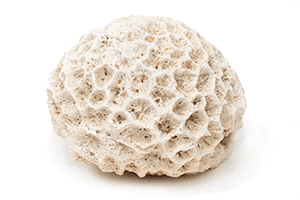Our bones are the scaffolding of our bodies, providing structure, protecting organs, and anchoring muscles. However, their strength and density are often taken for granted until signs of weakening appear. Among the many nutrients essential for bone health, trace minerals such as calcium, magnesium, and boron stand out for their pivotal roles. These minerals work in concert to ensure our skeletal system remains robust throughout our lives.
Magnesium: The Unsung Hero of Bone Health
While calcium often takes center stage when discussing bone health, magnesium’s critical role should not be overlooked. It is essential for the proper utilization of both calcium and vitamin D, vital components for bone mineralization and overall skeletal strength. A diet lacking in magnesium can lead to diminished bone quality and an increased risk of osteoporosis. Hence, incorporating magnesium-rich foods like leafy greens, nuts, and seeds into your diet is crucial for maintaining bone health.

Boron: Boosting Mineral Effectiveness
Boron, though needed in trace amounts, significantly impacts how the body manages other essential bone-health minerals. By facilitating the absorption and utilization of calcium, magnesium, and vitamin D, boron plays a crucial role in enhancing bone density and reducing mineral loss. Foods such as avocados, nuts, and leafy greens are excellent boron sources, making them valuable additions to a bone-healthy diet.
The Foundation of Bone Health: Calcium
Calcium’s importance to bone health cannot be overstated—it is the primary mineral found in your bones. The synergistic relationship between calcium, magnesium, and boron underscores the necessity of a balanced intake of these nutrients. Dairy products, fortified plant milk, and green vegetables can help meet your daily calcium needs, supporting the development and maintenance of a strong skeletal structure.
Beyond Diet: Lifestyle Factors for Strong Bones
Achieving optimal bone health extends beyond nutrition. Weight-bearing exercises, such as walking, running, and resistance training, stimulate bone growth and enhance density. Combining a diet rich in essential minerals with regular physical activity lays the foundation for strong bones and a reduced risk of osteoporosis, particularly in older adults.
Taking Action for Bone Health
Understanding the role of trace minerals in bone health empowers us to make informed dietary choices. Including a variety of foods rich in calcium, magnesium, and boron is a natural strategy to support skeletal strength. For individuals with specific health conditions that affect nutrient absorption, consulting with healthcare professionals to tailor dietary and supplement strategies is advisable.
Our bones support us in every sense of the word. By ensuring we receive adequate amounts of trace minerals through our diet and maintaining an active lifestyle, we can protect and enhance our bone health at any age.
